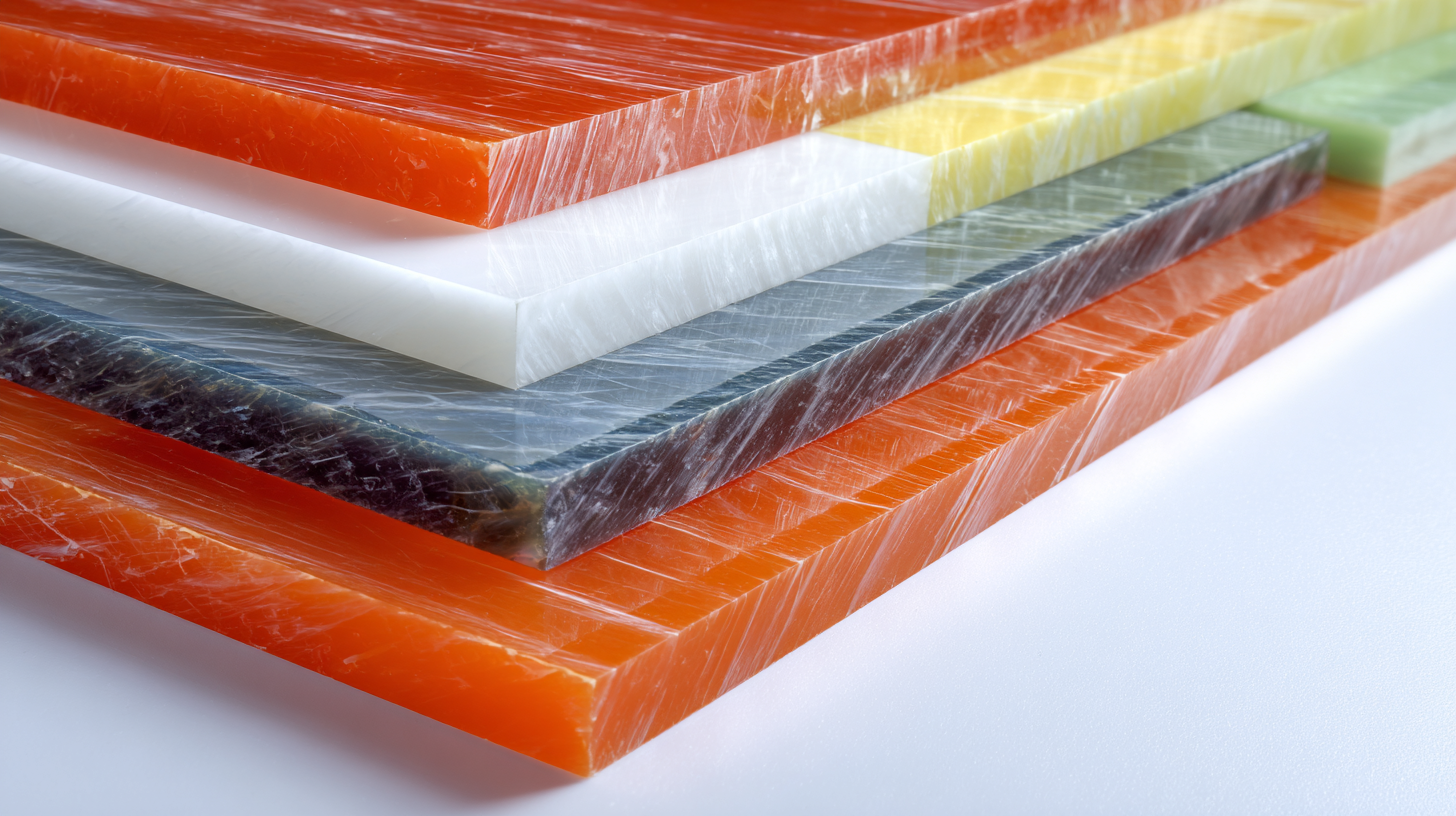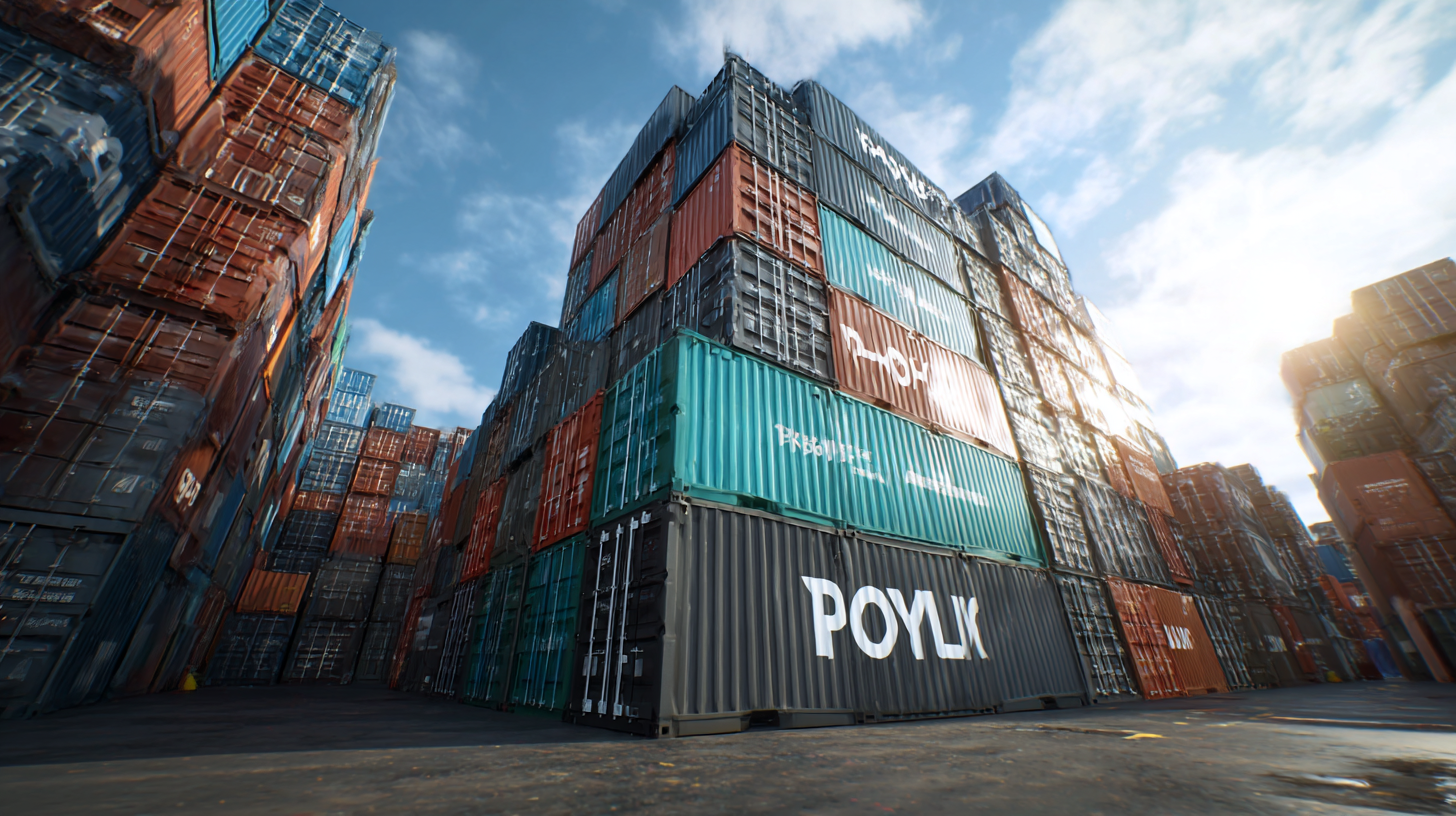


In recent years, the global market for premium Polyethylene Boards has witnessed significant expansion, driven primarily by China's robust manufacturing capabilities and innovative production standards. As a versatile material, polyethylene boards offer a range of applications across various industries, from construction to packaging, thanks to their durability, lightweight nature, and resistance to moisture. This blog will explore the industry production standards that govern the quality of polyethylene boards, the digital transformation reshaping manufacturing processes, and the underlying reasons behind the growing demand for these products worldwide. By delving into these themes, we aim to provide a comprehensive understanding of how China's advancements in polyethylene board production are setting the stage for its global proliferation, highlighting the potential benefits and challenges in the international market.

The global expansion of premium polyethylene boards from China brings a revolutionary solution to sustainable construction practices. These boards, known for their durability and resilience, provide an eco-friendly alternative to traditional construction materials. Unlike conventional wood or metal, premium polyethylene boards are manufactured from recycled plastics, significantly reducing the carbon footprint associated with building projects. Their lightweight nature not only facilitates easier transportation and installation but also minimizes the energy required for construction, thereby enhancing overall sustainability.
In addition to their environmental benefits, premium polyethylene boards are highly resistant to moisture, chemicals, and extreme weather conditions, making them an ideal choice for various applications including outdoor furniture, signage, and temporary structures. These properties ensure a long lifespan, reducing the frequency of replacements and the waste generated in the construction industry. Furthermore, the versatility of these boards enables architects and builders to create aesthetically pleasing designs without compromising on strength and sustainability, effectively meeting the growing demand for green building solutions in today’s construction landscape. The shift towards premium polyethylene boards marks a significant step in promoting sustainable practices while addressing the challenges of resource depletion and environmental degradation.
The chart below illustrates the growth of premium polyethylene boards' market share towards sustainable construction practices across various regions from 2020 to 2023. The data reflects the increasing adoption of these materials due to their environmental benefits.
The global shipping industry increasingly recognizes the advantages of lightweight and durable polyethylene boards, particularly those manufactured in China. These boards have evolved to meet the demanding needs of various sectors, thanks to their exceptional strength-to-weight ratio. This characteristic allows for reduced shipping costs and improved efficiency, as lighter materials make transportation easier, leading to significant savings for companies involved in logistics.
When considering the transition to polyethylene boards, businesses should keep in mind a few key tips.
Moreover, embracing the use of these innovative boards can enhance sustainability efforts. Polyethylene boards are often recyclable, providing an eco-friendly alternative to traditional materials. By making informed choices and leveraging the benefits of lightweight and durable polyethylene boards, companies can boost their operational efficiency while contributing to environmental preservation.
The global expansion of premium polyethylene boards from China has significantly transformed the manufacturing landscape, particularly in enhancing cost efficiency. These innovative materials offer outstanding durability and versatility, making them a superior choice for various applications across industries. As manufacturers increasingly adopt premium polyethylene boards, they find that the reduced weight and enhanced structural integrity allow for streamlined production processes. This can lead to lower shipping costs and improved handling efficiencies, ultimately contributing to a more cost-effective operation.

Moreover, the adoption of premium polyethylene boards minimizes waste during manufacturing due to their precise sizing and ease of processing. This aspect not only promotes sustainability but also helps companies optimize their resources. By reducing material waste and lowering the need for extensive modifications, manufacturers can improve their bottom line. As industries strive for greater efficiency and sustainability, the impact of these boards on cost reduction and operational excellence cannot be overstated, paving the way for a more profitable future in manufacturing.
The global market for premium polyethylene boards is witnessing significant growth, driven by their innovative applications across diverse industries. According to a recent report by Grand View Research, the polyethylene market is expected to reach USD 129 billion by 2027, with a compound annual growth rate (CAGR) of 5.6% from 2020 to 2027. This surge is attributed to the material's versatility, durability, and functionality, making it an ideal choice for sectors such as construction, automotive, and packaging.
In the construction industry, polyethylene boards are increasingly used as insulation materials due to their excellent thermal resistance and moisture barrier properties. The global construction industry is projected to reach USD 10.5 trillion by 2023, creating substantial demand for lightweight and energy-efficient building materials. Additionally, the automotive sector is adopting polyethylene boards for interior components and exterior body panels, contributing to a more sustainable approach by reducing vehicle weight and enhancing fuel efficiency. Reports indicate that the use of lightweight materials in automotive manufacturing can lead to a reduction of up to 25% in overall vehicle weight, translating to significant fuel savings.
As industries continue to innovate and seek sustainable solutions, the global expansion of premium polyethylene boards from China is set to play a vital role in meeting these evolving demands.

The global demand for premium polyethylene boards is experiencing significant growth, largely driven by technological advancements that enhance their performance and versatility. These boards have found applications in various sectors, including construction, packaging, and automotive industries. Innovations in manufacturing processes have led to higher quality products that offer improved durability, weather resistance, and aesthetic appeal. As these properties become more crucial in applications ranging from building materials to packaging solutions, manufacturers are compelled to adopt new technologies to meet market expectations.
Moreover, the shift towards sustainable practices is redefining the landscape for premium polyethylene boards. With increasing awareness of environmental impacts, there is a growing demand for materials that not only fulfill performance requirements but also contribute to sustainability goals. Companies are investing in research and development to create eco-friendly alternatives, which further drives innovation in the polyethylene board sector. This convergence of technological advances and sustainability initiatives positions the market for accelerated growth on a global scale, reflecting a broader trend towards premium materials that prioritize both functionality and environmental responsibility.
| Region | Market Size (Million USD) | Growth Rate (2023-2028) | Key Applications | Technological Advancements |
|---|---|---|---|---|
| North America | 350 | 5.5% | Construction, Packaging | Sustainable production methods |
| Europe | 450 | 6.2% | Home Improvement, Automotive | Recycling technologies |
| Asia-Pacific | 600 | 7.0% | Packaging, Electronics | Advanced compounding techniques |
| Latin America | 200 | 4.0% | Agriculture, Infrastructure | Enhanced durability features |
| Middle East & Africa | 150 | 3.5% | Construction, Packaging | Smart manufacturing processes |